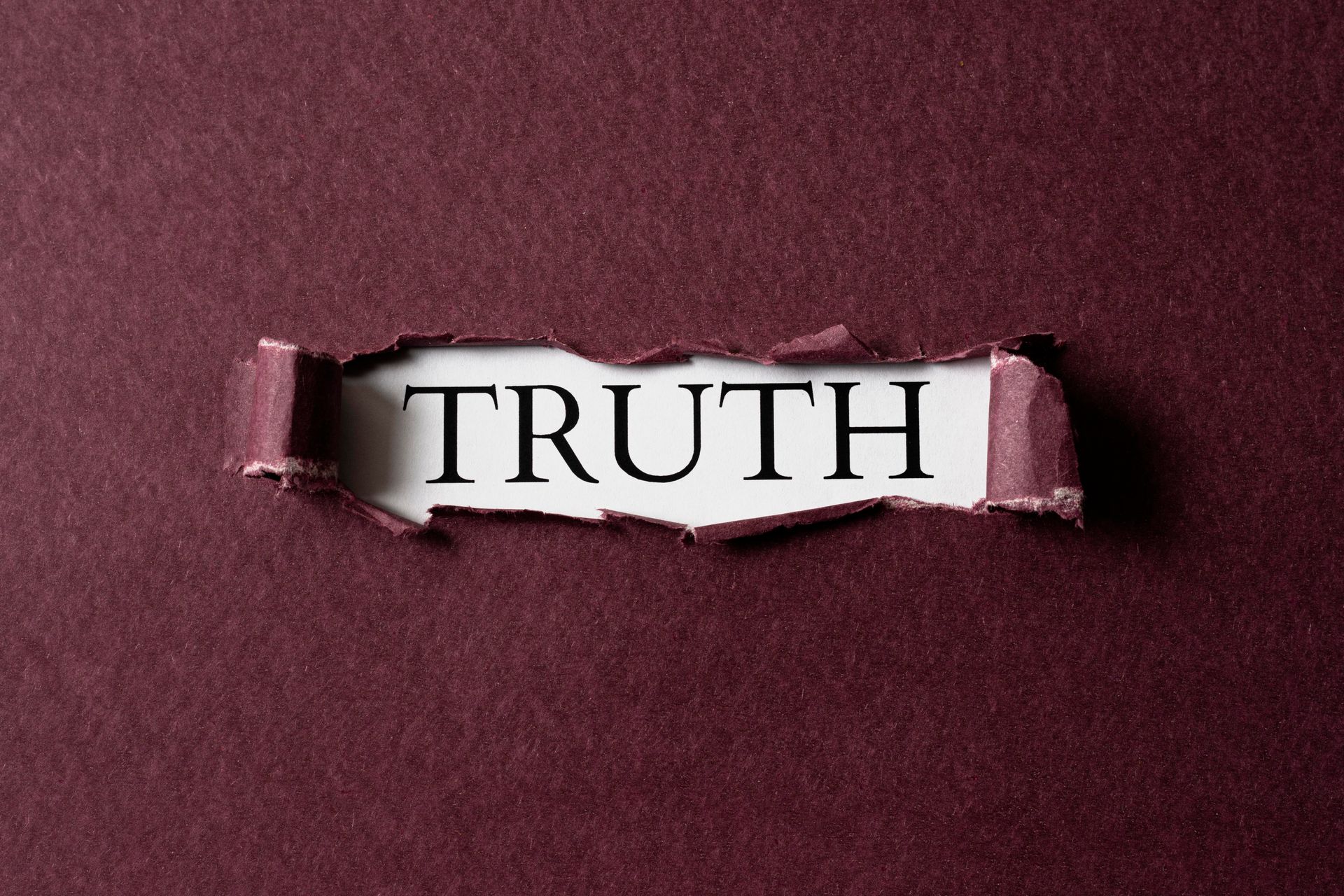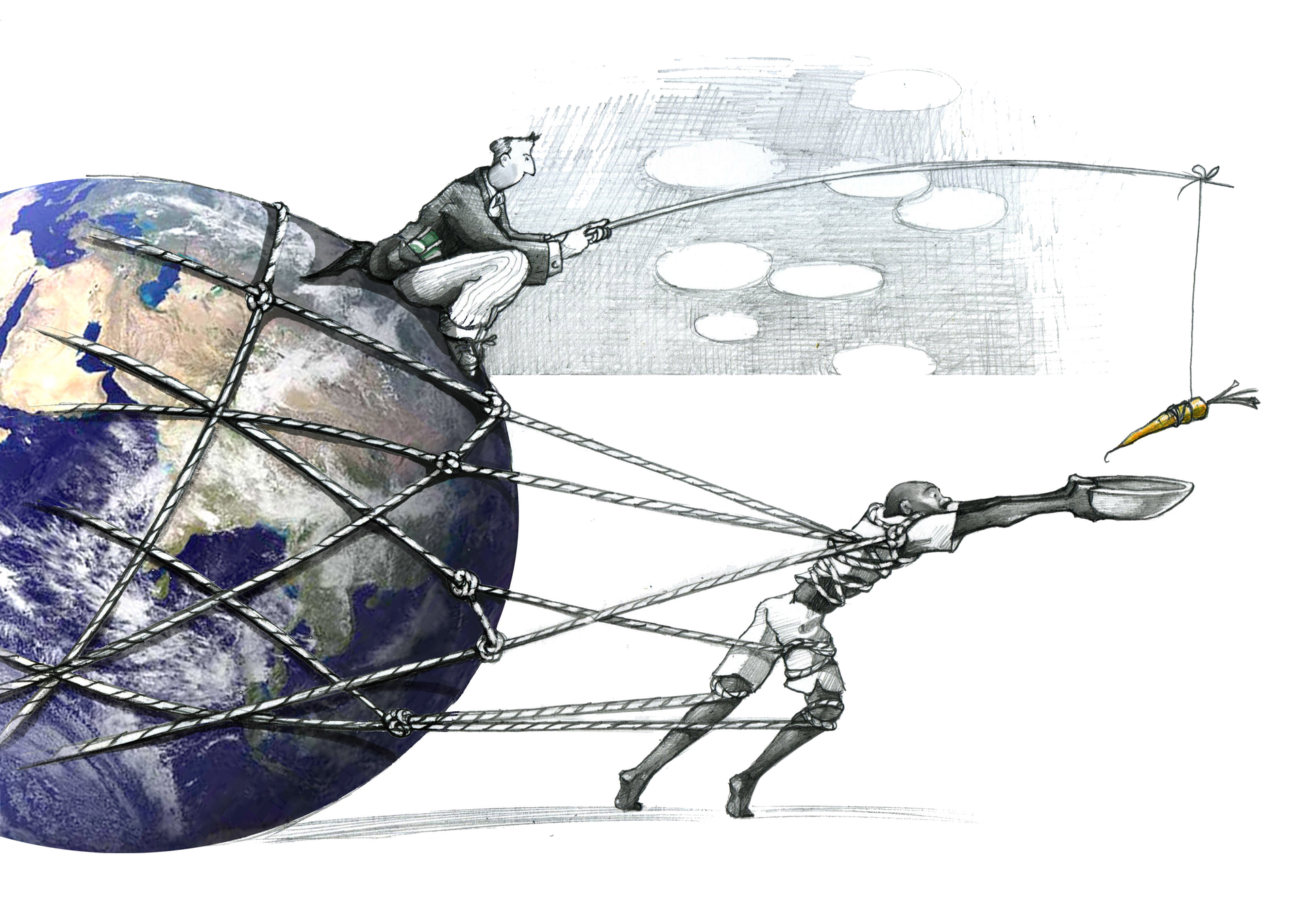They're Not Like Us
They're Not Like Us

They’re Not Like Us
Introduction
When I began blogging for CR Coleman MGMT LLC a few months back, it was my intention to post a new blog every two weeks. But God is in control. Several times I sat at my computer prepared to write and be consistent as I had promised, but I couldn’t get beyond the first paragraph. It wasn’t until I accidently, for the first time in my life, spilled water on my keyboard and had to send it out for service. Through prayer and a talented computer repair technician, my computer was restored back to its original state. Yet, this experience reminded me that although I’m a scholar and am exhilarated by opportunities to research and weave facts and knowledge together, this is God’s business and I write when and what He inspires me to write. When God has something to say in the context of this work the words begin to flow freely. I tremble and my heart flutters at the direction and scope my writing begins to take.
Rapid and consecutive downloads of wisdom, insight, revelation and meaning come together so beautifully, I wish that I could take the credit. But as I begin the process of writing, it can take hours, days, weeks, and even months before all the pieces come together. I comprehend the full context, direction, and areas to begin exploring; and I begin to pray it through, leaning into the especially delicate and challenging matters with a deep humility. I know this is effective because when the words are not His, they don’t stick, and flow; and I begin the process of deleting words, paragraphs, and even pages.
After doing this work for nearly thirty years, I recognize the words and the work is prophetic, for such a time as this, making it even more important that I lean into God as I am not capable of being so accurate with understanding the days and times we’re living in, days and times which He foreknew and prepared me for. An endeavor so significant, that the fear of God consumes me at the thought of misrepresenting Him and misguiding people. As such, my words and this path are His, and I am not in control of it, despite my knowledge, skills and abilities. My work and calling is not my own, and I yield it fully to Him. Also, as such, God has something to say.
When I coined the term Eurotheism a few years ago, it was a discovery that was unhidden through academic research I was conducting at the time. It was a jaw dropping moment that astonishes me to the current day. One of those things that you’re not looking for, but it finds you, attaches itself to you, and serves as a foundation to unlimited knowledge, meaning and purpose. Hidden knowledge that appears obscure to the natural eye, albeit it is clear to see. For nearly three decades of engaging with people across racial lines who claim The Faith as their own, who have some affiliations or identification with Christ. The current day appears to be a showdown of many gods. More specifically, a showdown between the Maker of the universe and gods of the culture. And there will only be one winner. God will protect and save His own.
History and Basis
My former work and engagement in Public Affairs, matters. And in the current day, the social and political climate in the US reveals much. Let me first say, I’m a former Democrat as well as a former Republican. In fact, it was my affiliation with the Republican Party that began my three decades long path and purpose in Public Affairs. As a self-proclaimed and recognized public servant, I was asked to lead the newly developed Public Affairs Ministry at an international church that I was a part of in the Washington DC area. As a result, I was recruited by a lobbying firm to organize a March on Washington for the protection of religious freedoms in the US. The aim wasn’t just to organize Christians, but any Faith-Based Organization (FBO). Protecting the freedoms of one FBO, supported the interests of all other, FBO’s. In my role as event organizer, I got multiple opportunities to lobby Congress and became a non-registered lobbyist. I did the work of a lobbying, under the guise or the organization I worked for. My participation with that group and the Republican Party was influenced by its advancement of “traditional family values.” As a person of The Faith, this was a no brainer for me, as I had been taught that family values were God’s values within the culture.
As that experience was the start of my path and purpose in Public Affairs, I discovered, however, through soberness of mind, life’s experiences and the path, which, took me from rubbing elbows with “world changers” of the political realm (US Presidents, Congress, Supreme Court Justices) to the grassroots of American culture, to perceive and comprehend a broad scope of how The Body of Christ generally operated. Through this, it became clear to me that American traditional family values did not necessarily represent the God of the Bible, who and what He values. I learned that in many churches, the consistent message was, The Faith couldn’t be realized, except it also reflected American traditional family values; the two were being conflated, as opposed to being identified as two separate and unique bodies. Considering this, I believe that politically, socially, and in all other instances, in the fullness of time, we are in a showdown of gods. I believe this for sure is occurring in America and across the globe where America has had some influence, relative to The Faith.
What rings in my head constantly as I do this work is that The Faith is the business of our Maker. One’s Identity in Christ transcends all other identities, which, are generally socially constructed whether in the US, or abroad. Indeed, this is the basis for which, I coined the term Identity in Christ nearly 30 years ago. The Faith is not any specific political, social or otherwise group. It belongs to God, represented by scores of individuals, past, present and indeed, future. No one entity can claim ownership of God. What He is, whom He favors and accepts.
Decades after beginning the journey of my calling and work to challenge and counter socially constructed categories that compete with one’s Identity in Christ for the glory of God and the good of us all. I have never been able to shake the notion of how there are groups among us, who have significant power and influence, who declare The Faith, but their identity and expression of The Faith is toward the advancement of beliefs around Whiteness, and the power, control and gain produced from it in a cultural context. To be a Christian for these, it appears that one must express and maintain loyalty to traditional American family values; and if one doesn’t identify with the socially constructed category of Whiteness or adhere to and reflect its ideologies and identities as a fundamental belief system and demonstration of The Faith, you’re not a good Christian, or even a Christian at all. As such, this notion is blasphemous, improper, and a disservice to humankind, past, present, and future. The thought of people denying God, or perceiving Him in the context of race deeply, deeply, deeply grieves my soul, day and night. I wonder how many have denied and missed the glorious presence of God in their lives because of this, past, present, and future. In fact, it was the negative and false perceptions of “the other,” so called races of people, as well as their religious beliefs, which, established and justified racism and the Transatlantic Slave Trade, (Reasons for the development of the slave trade, 2022) as well as many related instances of racism and known to us in the current day.
For example, history has revealed this truth for many centuries, and indeed since our inception when it was determined that if anyone was not White Anglo Saxon Protestant, (WASP) they could not be a Christian; (Hine, Hine, & Harrold, 2006); albeit the Bible teaches that The Faith is comprised of “every nation, tribe, people and tongue;” and no one is more acceptable by God, greater than, or more valuable than another. History also reveals that The Faith, in fact, as opposed to any culture (the world) is a culture (philosophy, values, beliefs, principles, etc.) unto itself; and declares that those who serve as leaders, are compelled not to abuse their power and lord over others so as to take His place as the “Lord of His church;” (people) but rather, they are to be the actual servants to His church, with the goal of comforting and guiding people toward the image of Christ, in (of) the character and nature of the example Christ demonstrated; taking lowest positions among others as the actual servants; these do not “sit high and look low” as He does, as we imagine Him on His heavenly throne, with all power and authority to be revered above all Matthew 20:20-28 (New King James Version).
With the examples we have among us since our inception as a nation, any breathing, thinking human being would have to wonder, could there be a different gospel that has been paraded among us, misguiding and deceiving scores, past and present because of the social construct of race toward earthly power, gain and control? Deliberately creating and causing division in the Body of Christ for personal gains? I pondered this, day and night through distress and trepidation, and the thought of even challenging the deeply embedded norms surrounding it. But norms, albeit they are embedded, do not equate being valid or accurate.
In accepting this calling and path, never wavering in my heart and softening to the challenge through clarity, which, God revealed consistently through His Word and the great Communicator, the Holy Spirit. It was obvious that something other than The Faith was occurring as a rule, rather than an exception. I struggled with how to approach this. Waiting, and waiting for someone else to take up the call so that I could align myself with them, it always seemed to be the furthest from people’s mind. What was front and center, however, that could not be denied, was The Faith, built in the context of culture with racial implications, violence, hatred and disparities, did not reflect the Bible. This notion ever evolves, as it consistently advances toward upholding and reinforcing power, control and gain at the expense of non-Whites, in the name of God.
Where these notions of Christianity being the example and identity of a particular race, class or political affiliation of people persist, the rest of us observe with great clarity, up close, as well as from a distance, and we declare as members of The Body of Christ, “They’re not like us.” Now, I respect that many have lived and gained through false notions of The Faith. I respect it. Well done. It appears to have been very successful insofar as it has gained many followers, power, control, and possessions. But to what end? The Kingdom of God? I think not. And I am confident that the Maker of the universe doesn’t think so either. And currently, after centuries of this grave error being practiced and promoted, this showdown of the God and Maker of the universe and the gods of culture is in play.
The evidence of The Faith being consistently transformed throughout history (some timely, valid, and accurate, and some not) to fit cultural narratives and norms isn’t just my observation. It is the observation of many. Boyer (2001) deduced that The Faith in America was ever being modified,
over time periods, regions and social groups. Slaves and their masters in the antebellum South, abolitionists and their opponents in the North, capitalist robber barons in the Gilded Age and Social Gospel critics of capitalism in the Progressive Era, anti- Darwinians in the 1920s, civil rights marchers in the 1950s and 1960s, pacifists in the 1930s and Cold Warriors in the 1950s, and in the 1990s, feminist theologians and fundamentalists who believed that the reign of Antichrist was just around the corner--all found in Christianity a religion that spoke to their condition and (or so they claimed) validated their worldview. No doubt all great religions have this chameleon-like quality, but in Christianity this capacious adaptability seems especially pronounced, and nowhere more so than in the United States. (para. 8).
Race based “religion,” is clearly ongoing to the current day stemming from
The Europeans’ initial encounter with non-whites was through conquering and seizing their land, and then subjecting the inhabitants of the land to enslavement or colonial repression. This was not only justified because to the color of their skin however, but specifically because others held non-Christian beliefs and practices (Benedict, 1959; Fredrickson, 2002).
The gods of culture and the world toward racism (parallelled in the church) are in fact, deeply embedded cultural norms, noting that
As racial tensions heightened, pseudo-scientific beliefs of race began to arise through the field of academia and in particular, from the concept of the origin of the human species, which rendered the social meaning of non-whites as being inferior to Whites. This concept was derived exclusively from studies of animals reported on by Charles Darwin in his 1859 publication, The Origin of the Species (Marger, 2006).
The evidence that
American Christianity since 1800 would certainly also emphasize the patriotic theme, demonstrating how Christianity has adapted itself to American nationalism. Politicians and religious leaders from the Revolutionary era onward have wrapped their policies in the cloak of divine purpose, to broad public approbation. While Dan Quayle of "potatoe" fame is the only national politician I have heard in recent years explicitly describe America as "God's chosen nation," the assumption remains implicit in much of our public rhetoric (Boyer, 2001, para. 10).
The Faith isn’t a social construct that only recognizes Americans, despite their race. Jesus Christ ONLY recognizes and His church, made up of people from around the world, yet,
Nowhere in the narrative of [mainstream American] Christianity is it more common to perceive the Christian church as being representative of nationalist patriotism, rather than religion, which is tied to first generation ideals of Christianity than in the Evangelical church movement, which also observes a general strict adherence to American conservative politics. For example, “the multicultural language of “gift” and “celebration of diversity” is common in mainline Protestant churches, but much less so in evangelical churches. In part, this is because evangelicals avoid multicultural discourse, which they associate with secular liberals” (Garces-Foley, 2007. p. 216).
They’re Not Like Us
Given this, in 2017 I coined another term, which, built upon Identity in Christ. That term is Eurotheism.
Eurotheism, in contrast to Christianity holds to notions of:
· a faith belief and practice that is based on traditional European thought and experience, while Christianity supports the adherence to and practice of Biblical thought and teachings, which are meant to transcend cultural or socially constructed thoughts and teachings;
· b.) relies on racial/ethnic stratification and ethnocentrism, which lends to a perception that Non-Whites hold second class citizenship to Whites in society and in the Christian church, while Christianity reveals that God is no respecter of persons, God has no favorites and everyone is regarded equally;
· c.) holds to forceful stances in market capitalism, individualism, competition, self-preservation and self-indulgence, while Christianity overwhelmingly embodies care for others, self-sacrifice and charity;
· d.) makes alterations to Christianity based on changing social or political factors that support a worldview through a European-American lens that may also include typically conservative political or non- religious [cultural] ideology while Christianity supports consistency in ideas and attitudes based on solely from Biblical thought of Godly character;
· e.) supports nationalism and patriotism that regards European Americanism as Christianity by default, while biblically, one’s nationality or place of citizenship, cannot be found and named as a way to know and experience God;
· f.) emphasizes cultural pride and identity versus Identity in Christ.
And as a Member of The Body of Christ, I wholeheartedly declare that it appears evident that They’re Not Like Us.
As a social scientist, I observe culture through an objective lens, to describe what is at play as a matter of education and knowledge. My path has taken me throughout all aspects of American culture, engaging with the so called, least to the greatest. Currently in the culture there is what is called a “rap battle,” where musical artists of the Rap music genre compete with one another in a battle of words, depicting cultural attitudes and information in poetic form, with participants of the “battle,” each responding in an effort to outdo, or upstage their opponent; to establish greater recognition and superiority as a musical artist; as well as “street cred” (credibility). The current battle has taken the world by storm.
The battle is occurring between two well-known music artists, Mr.’s Kendrick Lamar and Aubrey “Drake” Graham. Mr. Lamar’s latest response to the battle is called, “Not like us.” In it, Mr. Lamar infers that Rap music culture (within the mainstream of culture) has a unique identity and origin that is birthed from and reflects the “essences and life experiences” of American Black culture. Fundamentally, this is what Rap music is.
And while the Rap music genre is a global one, it would be a grave error to seek to usurp the identity of, or appropriate Rap music,” in America,” among Black Americans and other fans of the genre, who have become fans in light of its origins, meaning, impact and purpose. Liken this to biological child, versus a non-biological child, who does not have the DNA of the parent, (culture) the experiences associated with the parent, or the experiences as a child that shapes one’s knowledge or ability to represent the parent, except by association. Likewise, this is what appears, Eurotheism is. A counterfeit, parading as authentic. A different essence, meaning and purpose, that misguides, divides, and deceives many.
While many have been deceived, divided, and misguided by the topic of race and their Identity in Christ despite their race, (as I believe the numbers and categories of the deceived cannot be counted) there is grace in the current day that we can take advantage of, while we still have the opportunity. Tomorrow is not promised to any of us. The Faith, its culture and identity, cannot be mimicked or superseded by any other to be accepted as genuine or authentic. It is unique, in and of itself, despite changing times or circumstances. And in the current day, I am compelled by God to help us “all” where we are challenged by these facts, to assist us in processing our Identity in Christ, in the context of culture and cultural norms. In my role and ability as a social scientist and my decades long experience, knowledge and analysis, I started this organization for the good of us all, by teaching, training, coaching and advising on the topic. My work is available to all who recognize the need for insight, accuracy, and change on the topic personally, as well as generally.
In lieu of acquiring my services designed for organizational leaders who are responsible for guiding and modeling The Faith for others to follow, I have a few recommendations that I am compelled to share that anyone can benefit from, whether they are an organizational leader or not. Whether they are paid or a volunteer. Despite their race. Although my work is designed for leaders of FBO’s, each of these recommendations serve as a basis for my work and will help us where we are challenged, toward the good of us all, for the glory of God, against widely adopted norms. I urge you to use these recommendations as a basis for prayer for yourself and those around you.
Recommendations:
a.) Be mindful of your actions and attitudes related to people of other races. The Body of Christ is comprised of people from every nation and tongue, and in the days, we are living, you may someday need the people you have made or perceived yourself an enemy of, as it has been dictated by the world and culture.
b.) When in public, venture out to others and show dignity and respect to those who are not in your racial clique or circle. You never know who of The Faith is there among you that you have a spiritual alignment with, or who has answers to problems you personally may face.
c.) Avoid taking sides with others along racial lines. Rather, seek to discern matters in truth and with facts. If you don’t know about a matter, research it using several sources of credible information available on either side. Compare the results and identify trends and consistency to comprehend truth. Don’t take racial sides through assumption and stereotypes. You do yourself a disservice as no two people are exactly alike.
d.) Practice not attacking and making yourself the enemy of others based on their race, especially in matter of public discourse and policy. Rather, advocate for the well-being, dignity, and equity of all.
e.) Discern the shared Identity in Christ you have with others beyond your own socially constructed, ever changing identity in the culture.
f.) Acknowledge and internalize that The Body of Christ is DIVERSITY; and participating in hurt, harm or danger against a person or group of people based on their race, causes you to be a party to your own, best interests and needs. You will set yourself of for God’s judgment by attacking and seeking harm against His people. His church.
g.) The culture of The Faith transcends alliance, loyalty to, recognition and participation in any other culture, past, present, and future.
h.) Be mindful of and reject traditions of men, unless they align with The Faith. Pray, explore, and compare them with The Faith.
i.) Repent and ask God to forgive you for seeking to and indeed, hurting others of another race, having followed the way of culture and the world. Ask God to bless them and restore and recover whatever you have taken from them, or sought their harm in.
j.) Examine yourself and ensure that your Identity is in Christ and with His Body, not in people, places, or things. Who you know and what you know. Jesus doesn’t define His church by cultural things, people, and places. Hold onto culture loosely, and avoid seeking to gain in the world, at the expense of losing your soul where race and racism is a factor.
k.) Consider that God is judging the traditions of men against His truth related to race and identities in the world that transcend Him. He is returning for His church, not members of a particular country, political or social group.
l.) Don’t entertain or maintain hatred against others, despite their race. Personally reconcile and clear the air with them. Many of our prayers aren’t being answered because we harbor hate and bitterness against others, as we do the bidding even of ungodly others, on matters that have nothing to do with us personally.
m.) Don’t judge and measure others by your own life and experiences. No two people are alike, and our life is before God is as individuals. We are not the same as we were a week or a year ago. Ensure that your life is right before God before determining another’s life, especially when you don’t have insight or the facts of their path.
Jesus Christ is STILL Building HIS Church. Are YOU a part of the Church?
~ Dr. Cheryl R. Coleman
Best,
Dr. Cheryl
References
BBC. (2022, December 22). Reasons for the development of the slave trade - reasons for the development of the slave trade - higher history revision - BBC bitesize. BBC News. https://www.bbc.co.uk/bitesize/guides/z22nfg8/revision/1.
Benedict, R. (19591934). Patterns of culture. Boston, Houghton Mifflin.
Boyer, P. (2001). Two Centuries of Christianity in America: An Overview. Church History, 70(3), 544–556. doi:10.2307/3654501.
Fredrickson, G. M. (2002). Racism: A short history. Princeton, NJ: Princeton University Press.
Garces-Foley, K. (2007). New opportunities and new values: The emergence of the multicultural church. Annals of the American Academy of Political and Social Science, 612, 209-224. doi:http://ann.sagepub.com.ezproxy.library.unlv.edu/archive/.
Hine, D., Hine, W., & Harrold, S. (2006). African Americans: A concise history (Combined Volume). Upper Saddle River, NJ: Pearson Education.
Marger, M. N. (2006). Race and ethnic relations: American and global perspectives. Belmont, CA: Thomson Wadsworth.
Get In Touch
Contact Us
We will get back to you as soon as possible
Please try again later



